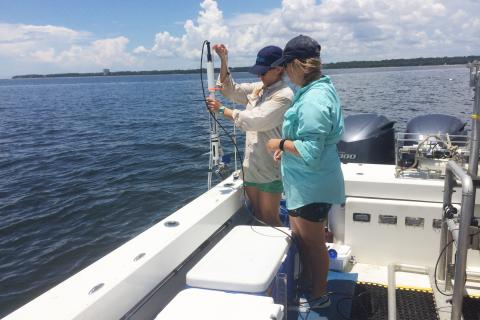The Trustee Council has approved new monitoring guidance for a number of resources we’re working to restore in the Gulf of Mexico. This new guidance is included in an updated Appendix E of the Monitoring and Adaptive Management Manual originally released in January 2018.
The new monitoring guidance covers restoration projects for oysters (PDF, 5 pgs) and submerged aquatic vegetation (PDF, 5 pgs), and for projects that restore and conserve marine, coastal, estuarine and riparian habitat (PDF, 4 pgs). Also included is updated information on measurements and methods for monitoring parameters (PDF, 57 pgs) that may be used to evaluate the performance of restoration projects. Monitoring data collected for restoration projects will be used to evaluate and adaptively manage our restoration program.
In the Deepwater Horizon Programmatic Restoration Plan, the Trustees committed to develop guidance for monitoring and adaptive management practices that support implementation and evaluation of restoration projects. We will continue to expand upon the manual as we complete monitoring guidance for additional restoration approaches, develop approaches for evaluating broad-based restoration progress, and learn more about the best ways to measure restoration progress for different resources and environmental settings.
The updated manual Appendix E sections are broken out into sections below for convenience.
- Complete Updated Monitoring and Adaptive Management Manual Appendix E (PDF, 108 pgs)
- E.3. Restoration Approach Core and Objective-Specific Performance Monitoring Parameters (PDF, 57 pgs)
- E.7. Protect and Conserve Marine, Coastal, Estuarine, and Riparian Habitat: Monitoring Guidance (PDF, 4 pgs)
- E.9. Restore and Enhance Submerged Aquatic Vegetation: Monitoring Guidance (PDF, 5 pgs)
- E.10. Restore Oyster Reef Habitat: Monitoring Guidance (PDF, 5 pgs)


